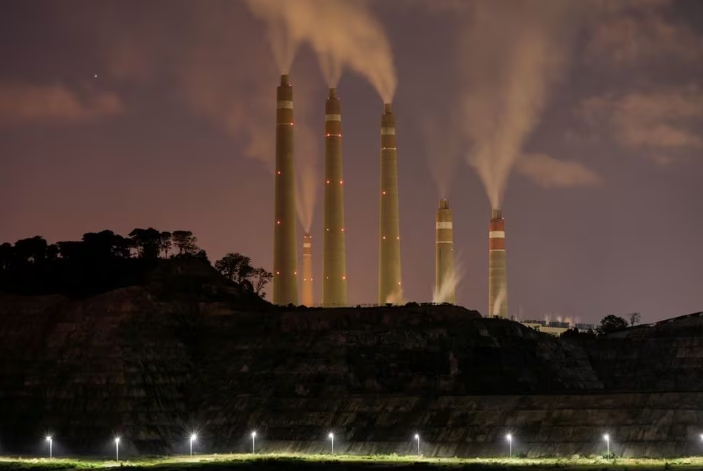
Environmentalists criticised the notion of categorising the financing of new coal power plants as sustainable when the possibility was first raised by authorities last year, pointing out such plants are a significant source of carbon emissions.
The new taxonomy was a revision to a 2022 document defining what is considered a sustainable investment in support of Indonesia's pledge to achieve net-zero emissions by 2060.
It uses the traffic light system, under which sectors labelled "green" are interpreted as aligned with efforts to meet Indonesia's climate goals, "amber" for sectors supporting the transition to low carbon economy, and "red" for those that harm the environment.
Under the new taxonomy, an investment in so-called captive coal power plants -- off-grid systems developed and managed by industries for their use -- is labelled amber as long as it meets certain criteria.
The captive plants must be built before 2031, be shut down before 2050, and commit to cut their green house gas emissions by 35% within 10 years since operation from 2021's average.
Also amber is mining of critical minerals that support clean technology, such as nickel for electric vehicle batteries, if it meets requirements such as post-mining land rehabilitation.
The taxonomy also labelled green investments in early retirement of existing coal power plants, which Indonesia has been trying to do under a G7-led climate funding initiative known as the Just Energy Transition Partnership.
"The new taxonomy takes a more comprehensive look at priorities in a wider context with regards to carbon emission reduction. Not just the environmental aspect, but also balancing that with social progress and economic development aspects," Indonesia's Financial Services Authority (OJK) chief Mahendra Siregar said at a press conference.
The plan to include financing for new coal power plants in the taxonomy, first brought up by OJK last year, has drawn criticism from green groups seeking to limit carbon emissions.
Expansion in nickel processing facilities in Indonesia in recent years has led to a surge in investment in captive power stations, due to their remote locations.
While many global banks have stopped funding coal assets, most Indonesian lenders have continued to finance projects related to coal due to their importance for the economy.
Indonesia is the world's largest exporter of coal and nickel.